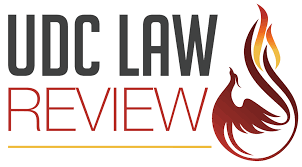
Abstract
Can or should a lawyer representing an alleged terrorist ethically allow the government to tape her conversations with her client as a prerequisite to the representation? Can a public defender live up to the promise of Gideon v. Wainright1 when he is carrying 100 serious felony cases? Should a lawyer who divulges a client confidence to bring down a corrupt judge be sanctioned? What ethical obligations obtain for the lawyer representing the CEO of a thriving start-up when the CEO admits that by over-reporting profits he believes that he has turned the company around? These questions, some of the toughest lawyers face in the post-September 11th, post-Enron and post-Worldcom world, were addressed in a panel discussion at the legal ethics colloquium sponsored in 2003 by the University of the District of Columbia David A. Clarke School of Law (UDC-DCSL) Law Review (the UDC-DCSL Law Review).
First Page
219
Recommended Citation
Katherine S. Broderick,
Understanding Lawyers' Ethics: Zealous Advocacy In A Time Of Uncertainty,
8
U.D.C. L. Rev.
219
(2004).
Available at:
https://digitalcommons.law.udc.edu/udclr/vol8/iss1/12

